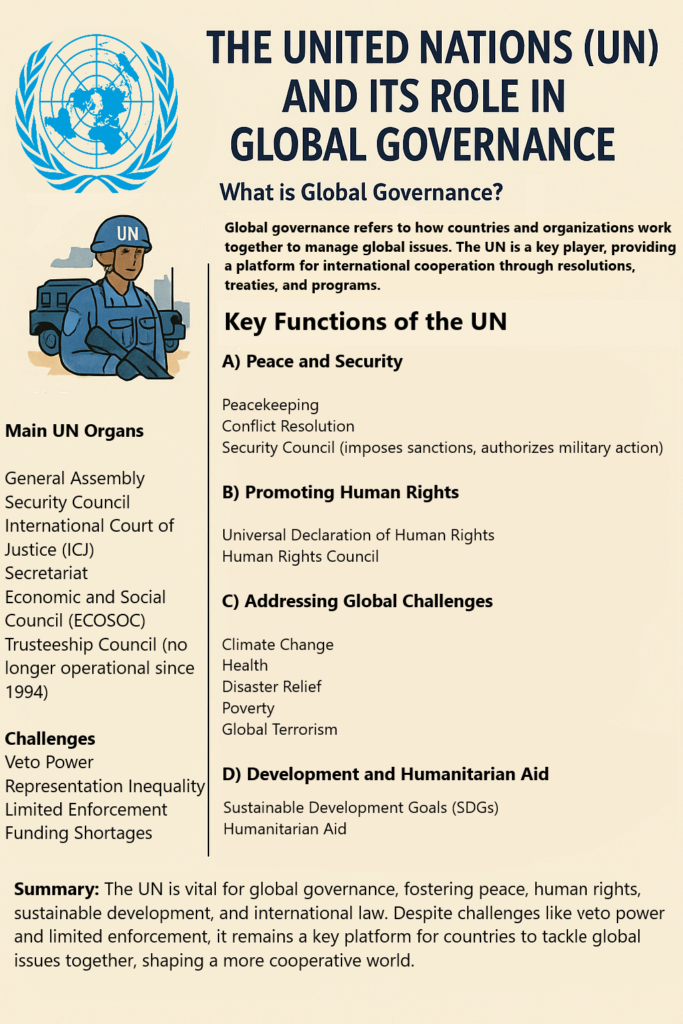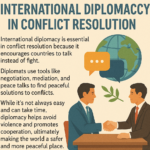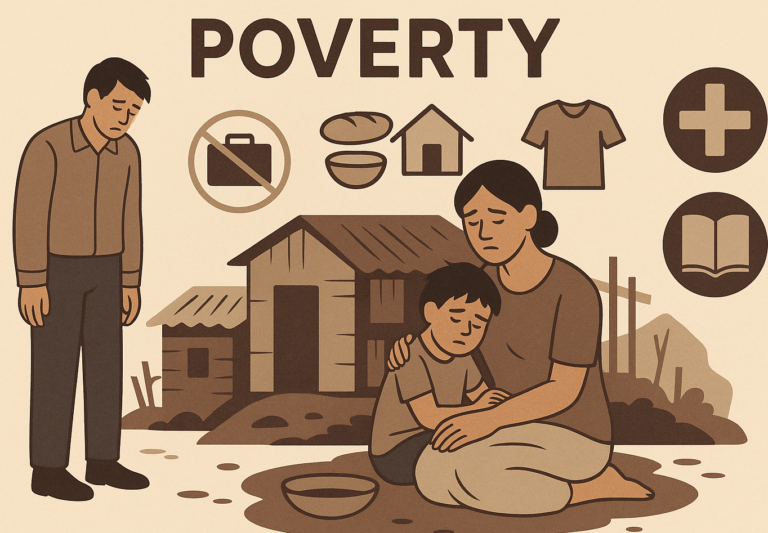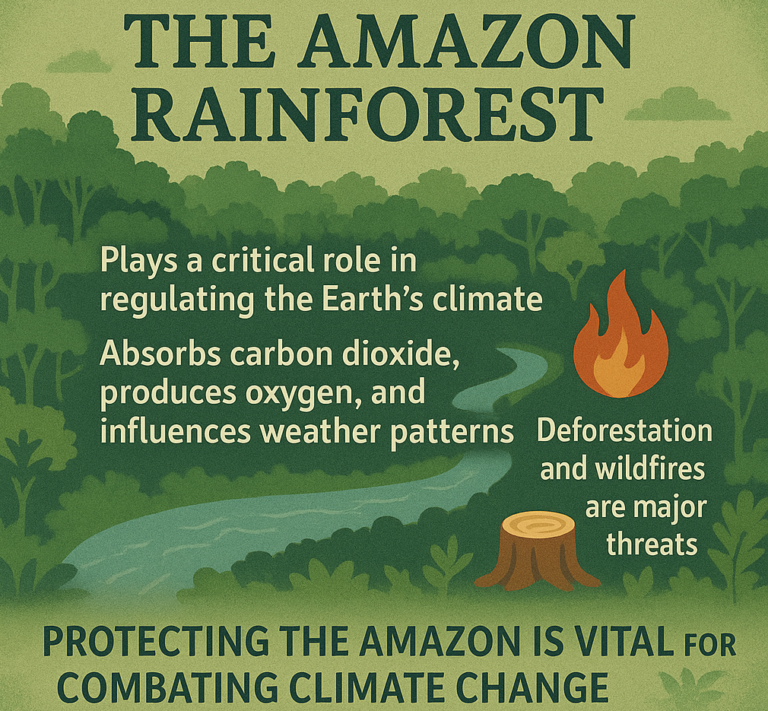The United Nations (UN) and Its Role in Global Governance
The United Nations (UN) is an international organization founded in 1945, shortly after the end of World War II. Its primary goal is to promote peace, security, human rights, and cooperation among countries around the world. With 193 member states, the UN plays a central role in global governance by providing a platform for dialogue, conflict resolution, and collaborative efforts on global issues.

1. What is Global Governance?
Global governance refers to the way international affairs are managed across countries and regions. It involves cooperation between countries, international organizations, and other entities to address issues that affect the global community—such as climate change, conflicts, poverty, and health pandemics.
The UN is one of the main institutions for managing global governance. It brings together countries to discuss and solve common problems through diplomacy, rules, and agreements.
2. Key Functions of the United Nations
The UN has a broad mandate and performs various critical functions. These functions are designed to address issues ranging from peace and security to social and economic development.
A. Peace and Security
One of the most important roles of the UN is to maintain international peace and security. It works to prevent conflicts between nations and provides a platform for resolving disputes through diplomatic means.
- Peacekeeping Missions: The UN sends peacekeeping forces (soldiers, police, and civilians) to areas affected by conflict to help maintain order and prevent violence.
- Conflict Mediation: The UN facilitates peace talks and negotiations between conflicting parties to help resolve disputes without resorting to war.
- Security Council: The UN has a Security Council (UNSC) that is responsible for making decisions about the use of force, sanctions, and peacekeeping missions. The UNSC has 15 members, five of which are permanent members with veto power (United States, Russia, China, France, and the United Kingdom).
B. Promoting Human Rights
The UN is a key player in promoting and protecting human rights across the world. It creates international norms and standards to ensure the dignity, equality, and freedom of all people.
- Universal Declaration of Human Rights: In 1948, the UN adopted the Universal Declaration of Human Rights, which outlines fundamental rights and freedoms for all humans, regardless of nationality, religion, or background.
- Human Rights Council: The UN Human Rights Council works to address violations of human rights and promote global awareness about human rights issues.
C. Development and Humanitarian Aid
The UN plays a significant role in global development. It focuses on improving the well-being of people around the world, especially in the areas of poverty, education, health, and sustainable development.
- Sustainable Development Goals (SDGs): The UN has set 17 Sustainable Development Goals to achieve a better world by 2030, covering issues like eradicating poverty, ensuring quality education, and combating climate change.
- Humanitarian Aid: The UN, through agencies like the United Nations Children’s Fund (UNICEF) and World Food Programme (WFP), provides humanitarian assistance to those affected by disasters, conflicts, and crises.
D. Addressing Global Challenges
The UN helps coordinate global efforts to tackle pressing global challenges, including:
- Climate Change: The UN has been at the forefront of coordinating international action on climate change. Through UN Climate Change Conferences (COP), countries discuss and negotiate solutions to reduce carbon emissions and combat global warming.
- Health Pandemics: The World Health Organization (WHO), a specialized agency of the UN, works to prevent and control global health issues like pandemics (e.g., COVID-19), and helps with global vaccination programs.
- Disaster Relief: The UN coordinates efforts to provide relief during natural disasters, offering support such as food, water, medical supplies, and shelter.
3. Main Organs of the United Nations
The UN is made up of six main organs, each with specific functions:
- General Assembly: This is the main deliberative body where all 193 member states have a voice. Each country gets one vote, and it discusses major global issues like peace, security, and development.
- Security Council: The UN Security Council is responsible for maintaining peace and security. It has 15 members—five permanent members (with veto power) and ten elected members that rotate every two years.
- International Court of Justice (ICJ): The ICJ settles disputes between states and provides legal advice on international law. Its decisions are binding, but only if the countries involved accept them.
- Secretariat: The UN Secretariat is responsible for carrying out the day-to-day work of the UN, managing operations, and implementing decisions made by other UN organs. The Secretary-General is the head of the Secretariat.
- Economic and Social Council (ECOSOC): ECOSOC coordinates the work of 15 specialized agencies like the World Health Organization (WHO) and International Labour Organization (ILO). It focuses on global economic and social issues like health, education, and employment.
- Trusteeship Council: The Trusteeship Council was established to promote the advancement of the trust territories and help them transition to self-governance. However, this body has largely completed its work and is no longer active.
4. Challenges Faced by the United Nations
While the UN has made significant contributions to global governance, it also faces several challenges:
- Veto Power in the Security Council: The five permanent members of the Security Council (P5) hold veto power, meaning they can block decisions, even if the majority of other countries agree. This has led to criticism that the UNSC is not always democratic or effective.
- Inequality Between Countries: Not all countries have the same level of influence in the UN. Wealthier and more powerful countries tend to have more sway in decision-making.
- Limited Enforcement Power: While the UN can make resolutions and recommendations, it often has little power to enforce them. For example, in conflict situations, the UN may call for peace, but it may not always be able to prevent or stop fighting.
- Funding and Resources: The UN often faces challenges related to funding and resource limitations, which can hinder its ability to carry out its mission effectively.
5. The UN’s Impact on Global Governance
Despite its challenges, the United Nations has had a profound impact on global governance and international relations:
- Peacebuilding: The UN has played a role in peace negotiations, preventing conflicts, and keeping peace in war-torn areas (e.g., in Cyprus, Rwanda, and Lebanon).
- Global Standards: The UN sets global standards and frameworks for human rights, environmental protection, trade, and other critical issues.
- Collaboration on Global Issues: The UN provides a platform for countries to collaborate on issues like climate change, poverty, and health, and helps create global agreements such as the Paris Agreement on Climate Change.
Conclusion
The United Nations plays a critical role in global governance by promoting peace, security, human rights, and sustainable development. It brings countries together to address global challenges, from conflict resolution to climate change, and helps coordinate international cooperation for a better world. While it faces several challenges, the UN remains an essential institution for managing the complexities of the modern world and ensuring collective action on issues that affect all nations.











